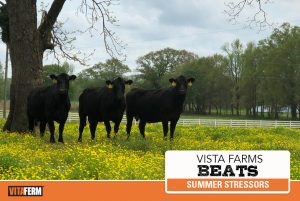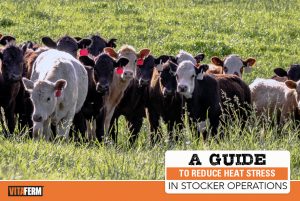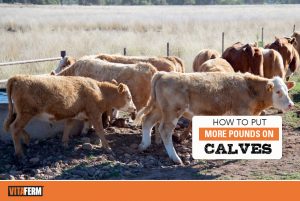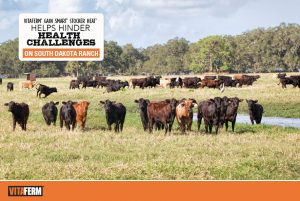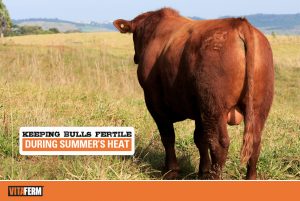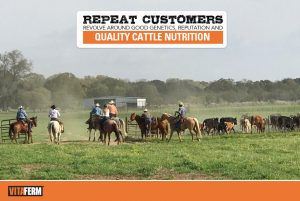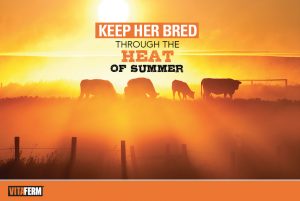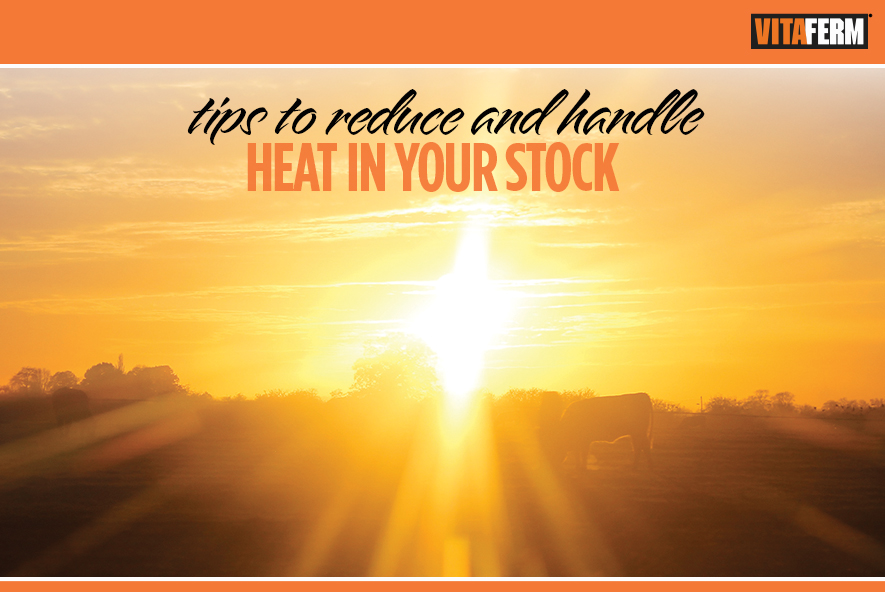Summertime heat can be both a blessing and a curse to those in production agriculture. For those who have planted crops, and received adequate rainfall, the heat is the element that makes those crops grow and thrive. However, for the cattle producer, heat stress can wreak havoc on reproduction, growth and efficiency, as the cattle […]
Category: Heat Stress
A Guide to Reduce Heat Stress in Stocker Operations
As cattle producers, when the temperature rises, you begin to feel the pressure of keeping the herd healthy and efficient. The warmer it gets outside, the more your herd runs the risk of decreased performance, increased sickness and ultimately economic losses. And when you put yourself in the shoes of the stocker operator, this pressure […]
How to Put More Pounds on Calves
Changing just one management decision can increase gain, and gain increases profitability. Just ask Ray Fussell. The Tennessee Ridge, Tenn., stockman has been buying stocker calves and backgrounding them for 20-plus years. And after he shipped his 2017 calves, his cattle buyer suggested he look into changing his mineral program. So he did just that. […]
VitaFerm Gain Smart Stocker HEAT Helps Hinder Health Challenges on South Dakota Ranch
In the spring of 2017, Melynda Gress of Y-Cross Inc., was looking for a supplement alternative for her backgrounding operation. Located in the northwest corner of South Dakota where she and her family run 800 to 1,000 yearlings each spring and summer, she knew she needed a more natural mineral option for her calves. Two […]
Keeping Bulls Fertile During Summer’s Heat
When we think about reproduction in the herd, our first thoughts immediately shift to the cows. Are they at the proper body condition to breed? When do we need to synchronize and breed them to hit our target calving window? However, the bulls contribute their genetics to each calf, and work harder than the cows […]
Repeat Customers Revolve Around Good Genetics, Reputation and Quality Nutrition
Jeff Simmons recalls riding horses on his grandfathers’ ranches when he was just a small child. Now, decades later, he owns and operates his own cow-calf operation, J&S Cattle near Bastrop, La., and takes great pride in the cattle he produces and the relationships he’s built with his customers. “In the cattle business, the most […]
Keep Her Bred Through the Heat of Summer
Cattle producers go to great lengths to do whatever it takes to get their cows bred. But what about after they are bred? Keeping a cow bred, especially during the summer months, can be equally as challenging. Typically, if a fertile bull breeds cows at the correct time, fertilization rates should nearly reach 100%. However, […]
Tips to Reduce and Handle Heat in Your Stock
Warmer temperatures are quickly approaching, and that means producers should start considering how to help their animals handle the heat. Heat stress is almost inevitable, but some management practices can be implemented to help animals better cope with rising temperatures. All mammals regulate their internal body temperature involuntarily. Heat stress occurs when the animal’s ability […]
VITAFERM HEAT NOW AVAILABLE IN A TUB, LOOSE MINERAL CTC 3G OPTION FOR ANAPLASMOSIS
BioZyme has expanded its rapidly growing VitaFerm HEAT brand to include a new 200 lb. HEAT Tub and loose mineral containing CTC 3G to aid in the prevention of anaplasmosis, an infectious blood disease spread by parasites that causes severe anemia and weight loss in cattle. Previously only available in a loose mineral, VitaFerm HEAT […]
VitaFerm HEAT Now Available in 3 Formulas
Heat stress impacts the performance of cattle with millions of dollars of annual economic losses. Animal responses to heat stress include reduced dry matter intake, decreased average daily gain, decreased milk yield, and decreased fertility and poor reproduction. Many producers also don’t realize that heat stress can begin a temperatures as low as 70 degrees. […]
